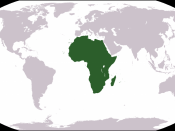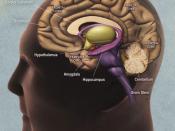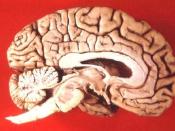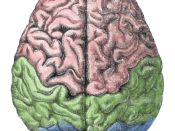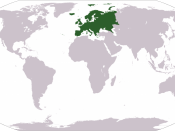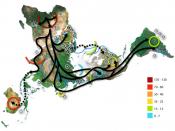THE FIRST PEOPLE It has taken five million years for our minds to become what it is today. Some scientist's believe that early humans thought the way we do, while others disagree. Two things for sure that we have in common with the early humans are travel and burial. Apocalypse killed all but around 10,000 of the first humans. Sixty two thousand years ago the human population began to bounce back. The humans began to make tools for hunting. The tribes began to grow, and expand into Eastern Europe from Africa. These humans named the Homosapians ran across the Neangrothols. Thirty seven thousand years ago the tools of the Homosapians began to be duplicated by the Neangrothols. The Homosapians began to produce art, in which they used to teach children or to remember things they have discovered, or places they have been. Art is believed by scientist to be the milestone between the early human brain and the present human brain.
The two groups began to conflict, but the winter was each groups greatest enemy. Homosapians traveled, and the Neagrothols stayed where they were. Twenty eight thousand years ago, the Homosapians out numbered the Neangrothols. Twenty seven thousand years ago the Neangrothols were extinct.
Only a few hundred Homosapian families left Europe and traveled to America, present day Alaska, on a land bridge that does not exist in our present world. They then began to travel south. Homosapians learned to live on fish as well as what they hunted.
They are the most successful of the humans because they traveled across two continents, while the others died out. One million Homosapians spread across five continents at the end of the Ice Age. Eleven thousand years ago they began to cultivate food, cities began to grow, and farms also began to grow.
Over the past 10,000 years, our bodies have adapted to new environments and diets. Our bodies may not be evolving, but are our brains?
